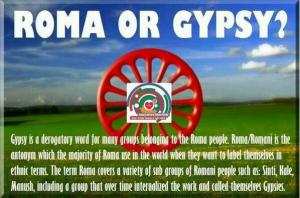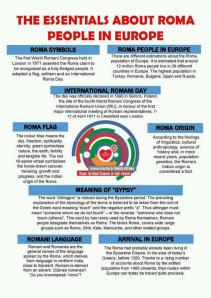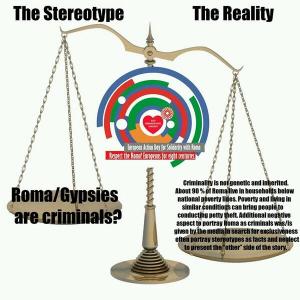This NPR article by Kima Jones, “Writers Of Color Flock To Social Media For A New Way To Use Language” struck a chord with me.
“The poem can’t find its audience until the poet has turned on the little hallway light of empathy and mercy and meaning. Those are the building blocks of understanding and reconciliation. That is the foundation.
For too long, writers of color have been told there is no audience for our work. That unless we write towards the universal human—which, of course, is code for white person—our work would not be understood, or read or taught. We are told that regardless of the work the poem is doing, we should codify it in a way that it is accessible and understood and praised by the universal human.”
This is why I use social media to raise awareness of Romani (“Gypsy”) culture and Romani rights. One of the most important things, I think, is spotlighting Romani writers, activists, and artists– Roma are “real” in a world where they are cast as romantic or villainous fantasies, and much of Romani arts and culture touches on the human rights crisis. It’s an issue that seems to have practically no audience, but once I started writing and publishing through social media, I found an audience. I was offered a position as a staff writer at an Quail Bell Magazine, and encouraged to write poetry, fiction, and non-fiction about Romani issues. The response has encouraged me to write a novel about a half-Romani woman who seeks retribution for her people after the Holocaust, and people seem to give some fucks about it.
That’s really what the whole #RealGypsyWarrior thing is about– I want to shine light on powerful Roma and Romani allies who are doing good work, and hopefully that kind of awareness will change the face of “Gypsies” in the media. People will think before appropriating the word “gypsy” or using it to define what have become harmful stereotypes about Roma. For instance, people often use the word “gypsy” to describe whimsical or irresponsible nomadism, but Romani nomadism was born out of persecution, and using the word in a romantic or pejorative way erases the persecution that Roma have suffered for centuries and continue to suffer today. Also, “gypsy” with a lowercase “g” is an ethnic slur, so that’s not great either.
Social media has also made it easier for me to connect with other Romani writers, artists, and activists in what is a very scattered and (understandably) secretive community, so I’m not only finding an audience, I’m finding my own community. Social media as been great for the Romani Rights movement (Opre Roma) in general because of this beautiful combination of visibility, accessibility, and connectivity.
How do other WOC use social media to create an audience for their work and passions?













